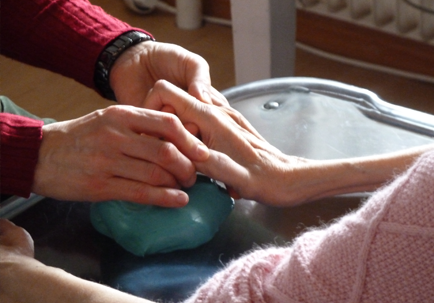Amyotrophic Lateral Sclerosis (ALS)

Amyotrophic Lateral Sclerosis (ALS) is a very severe disease of the central and peripheric nerv system. It is known for more than 100 years and exists in the whole world. Its cause is unknown, except for the rare hereditary form. Annually, one or two persons out of 100,000 come down with it. Because of the rareness of the disease there exists neither cure nor therapy until today. The disease mostly begins between the 50th and 70th year of life, only rarely young adults are affected. Men fall ill more often than women (1,6:1). The speed of the disease is differs a lot from patient to patient, but the average life expectation after the diagnosis is at 3 to 5 years. ALS only affects the motoric nerv system. The perception of touch, pain and temperate, seeing, hearing, smelling and tasting, the functions of the blister and bowel usually stay normal. The disease is accompanied by faszikulations, atrophy and paresis of arms and legs, but also the respiratory muscles. The disease is linked with a quick aggravation of the state of health. The psycho-social attendance and the advice for care are very important and thus offered by the Deutsche Gesellschaft für Muskelkranke e.V.












